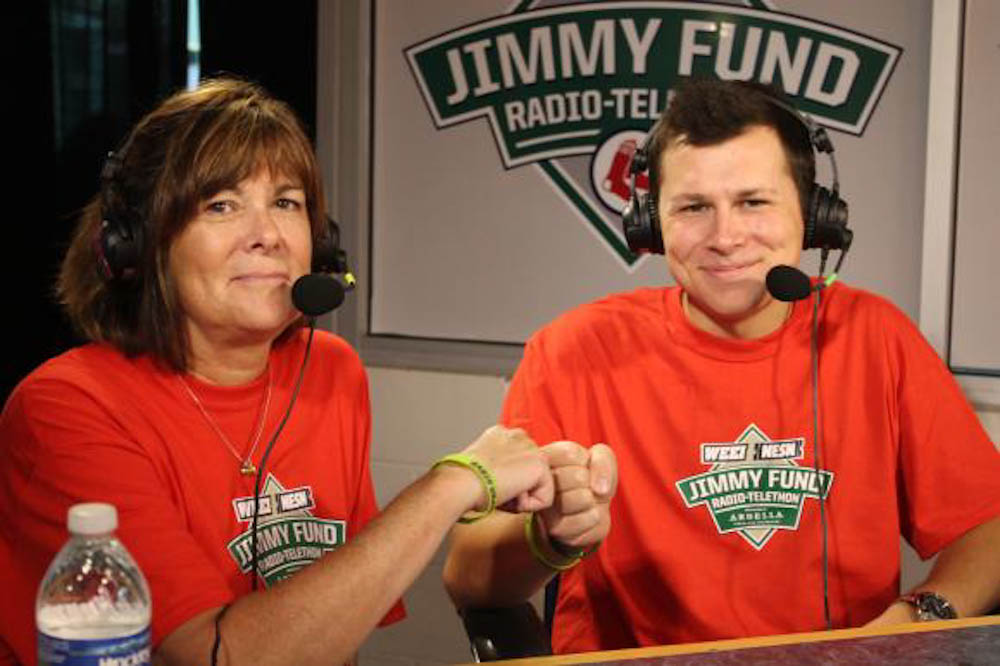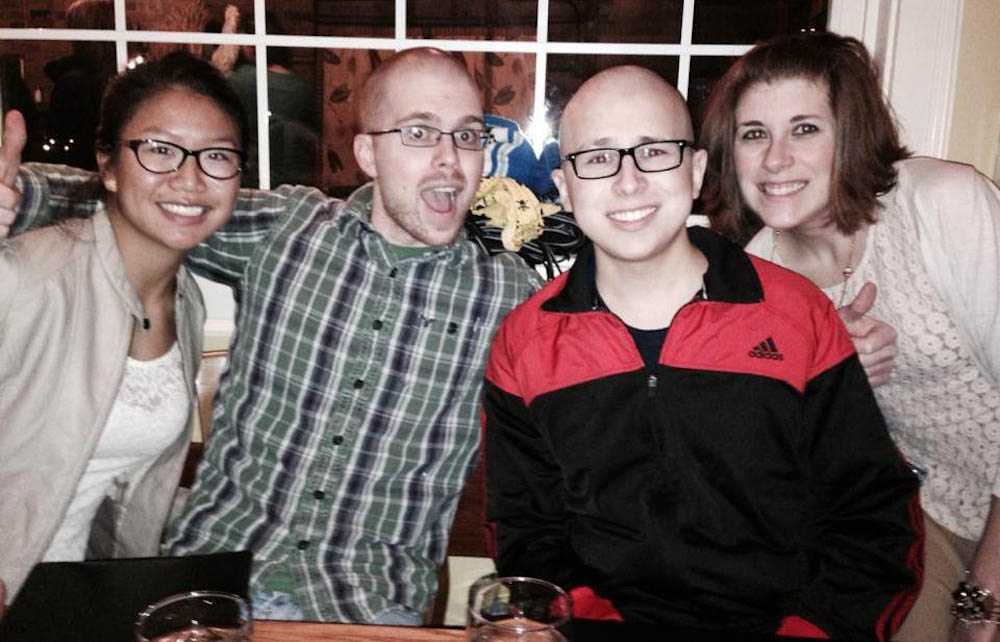
By Stephen Perez
Cancer has a way of putting your life on hold and making you prioritize your health, treatments, and your best attempts to not feel sick through the process. While there’s never a good time for this interruption, my diagnosis came at a particularly difficult time: the second semester of my senior year of high school. My world was forever transformed on Feb. 7, 2014, when my mother and I were given the devastating news that I had non-Hodgkin T-cell lymphoblastic lymphoma.
As the initial shock wore off and reality set in, my perspective and optimism made all the difference. It’s difficult to see your family struggle while you deal with such a daunting disease, but my positivity and motivation to finish school and go to college as planned helped all of us stay focused along the way. Now, I am a sophomore at The College of the Holy Cross, with just three months left of treatment at Dana-Farber/Boston Children’s Cancer and Blood Disorder Center. Starting college away from home can be difficult for anyone, but adding cancer treatment to the mix makes it even more difficult. Here are a few things I have learned about dealing with cancer while living away from home and trying to be a normal college student:
Read more:
- Use the resources your school offers.

The resources my school offers to help me with my health and schoolwork have helped reduce the burden that juggling college and cancer can present. These resources – such as disability services and understanding professors – are there to help you. My professors have been more then helpful with my unusual circumstances, and have been able to give me extensions from time-to-time based on missing classes for appointments and unscheduled illnesses. Thinking that you can get by without help, although brave, is not the best method. You’ll be amazed at the ways in which your school can help make life a little bit easier for you. I know I was. And if you don’t know how your school can help, simply ask.
- Your health comes first.

Remember to take care of yourself. Early into first semester this past winter, I came down with the flu and was hospitalized for a week. It was tough, but I had to first take care of myself before I could focus on my schoolwork. College is a germy place. Be cognizant of your surroundings and of other sick students. Your immune system is not as strong as others’, so it’s important you are aware of when others are sick and, more importantly, keeping track of how you are feeling. Make sure you are always washing your hands and not sharing food and drinks with friends to prevent illnesses from being contracted. If your friends are not feeling well, try to give them space until they feel better. It’s also important to eat healthy when possible, which isn’t always the easiest in college dining halls. Many of the foods may be fried or processed, so make an effort to eat lots of fruits and vegetables. You won’t have your parents around, so it’s important that you be responsible for your own health, and don’t hesitate to contact your doctor if you aren’t feeling well.
Stephen visiting with some of his friends shortly after getting out of the hospital.
- Don’t rush to be like every other college student.

I know it may be tempting to forget your unique circumstances in the hopes of being like all the other students. Don’t. You may feel uncomfortable at typical college parties, but don’t let that keep you from going out and enjoying yourself. Find friends who understand what you’re going through, that you may have some limitations, and who you can still have fun with. Take your time and don’t rush into too many activities, even though it may be tempting.
- Perspective is everything.

You’re likely going to have some tough days going through treatment while at college, but stay positive as much as possible and take each day at a time. Don’t forget that this experience will help make you a better person and better equipped to handle challenges down the road. In one way or another, you will come out of this stronger, and with a better appreciation for life.
Watch Stephen’s interview from the 2015 WEEI/NESN Jimmy Fund Radio-Telethon:
For more resources and support for young adults being treated for cancer during college, contact Dana-Farber’s Young Adult Program at yap@dfci.harvard.edu.


Thanks for sharing your story. I just graduated from college and started my first job in a new city and was diagnosed with Stage III Hodgkin’s Lymphoma right before my 23rd birthday. It’s comforting to know there are others out there who have gone through diagnoses and treatment while trying to still be a normal young adult. Even though I am not in school, I found the connections I had made during college were willing to help me in anyway throughout my treatments and offer me resources. Best of luck to you!